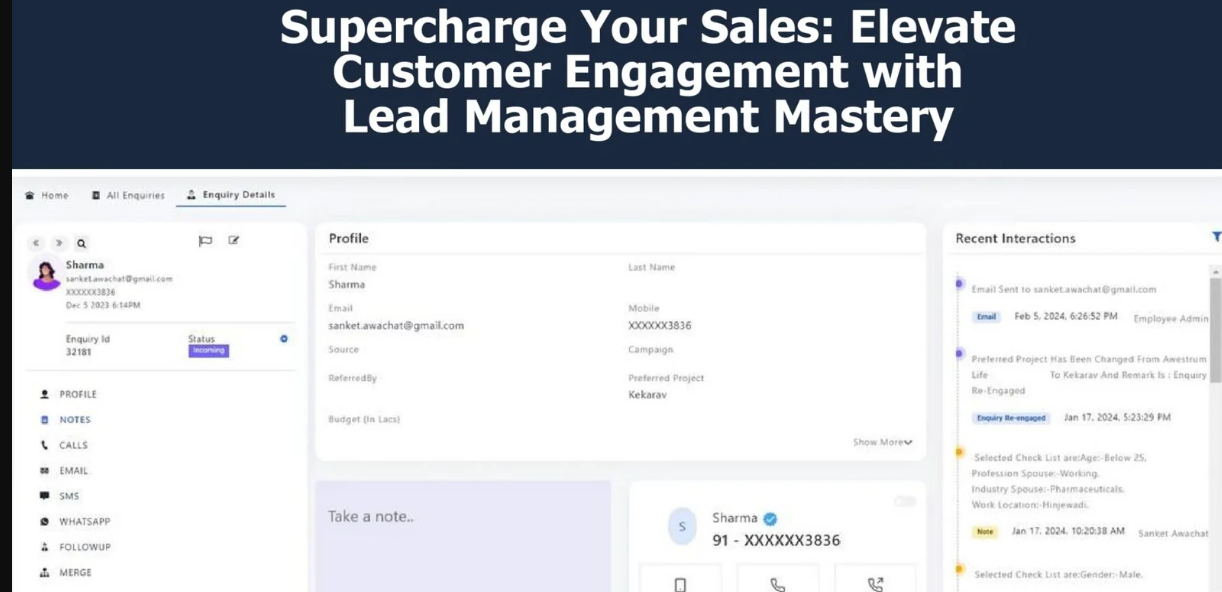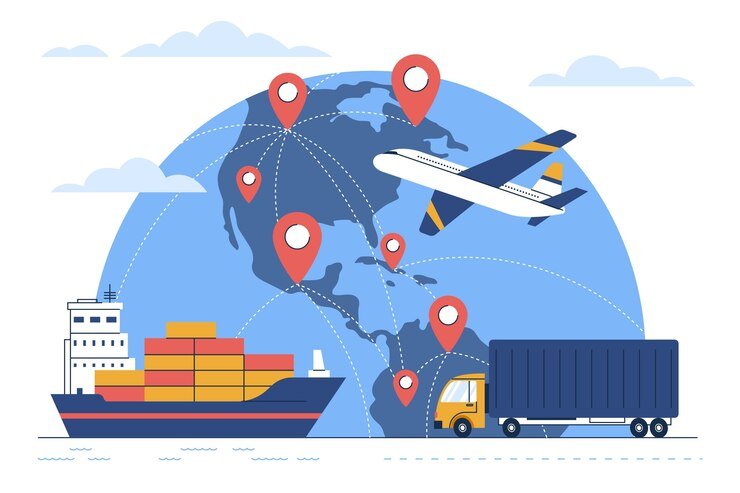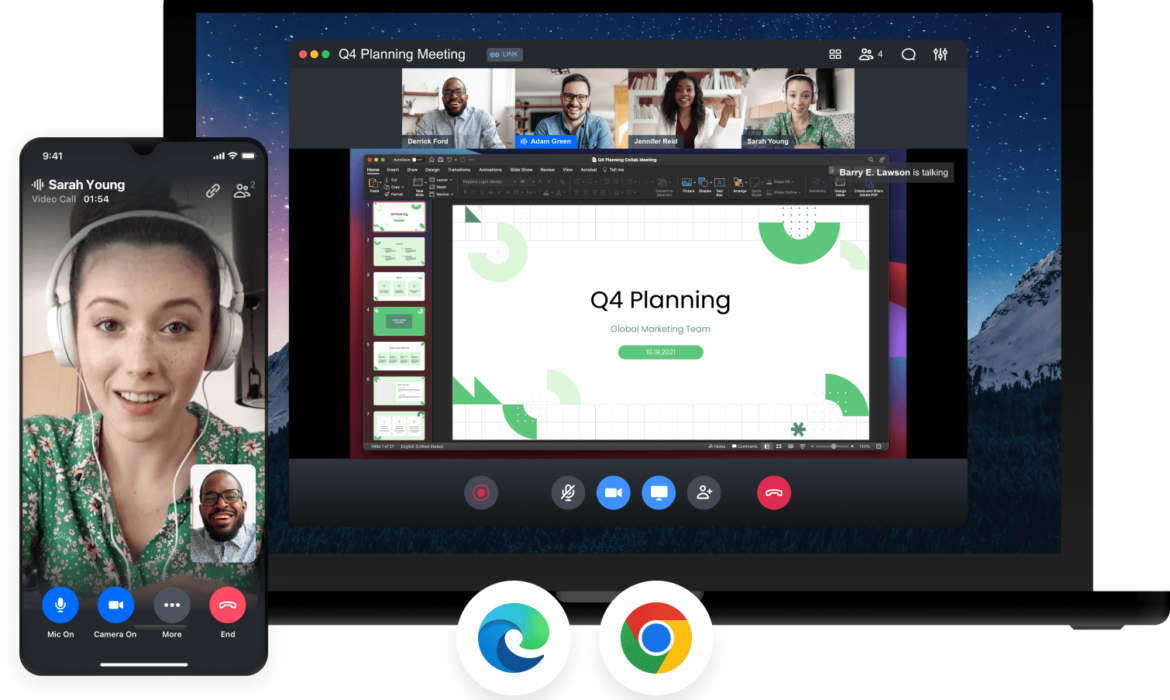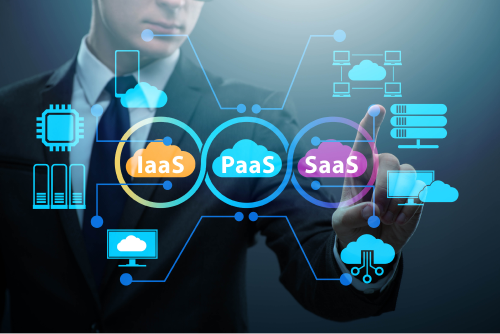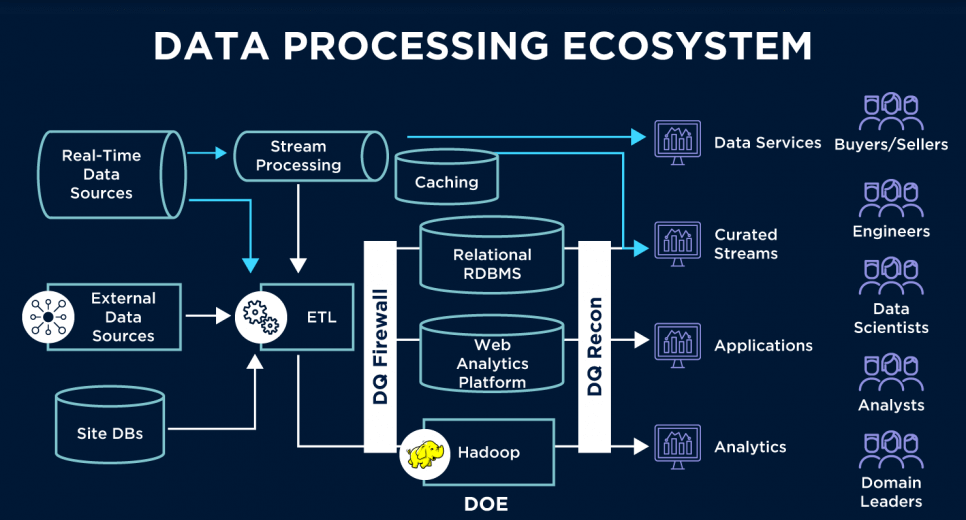In the rapidly evolving world of real estate, staying competitive means embracing cutting-edge technology. One of the most transformative forces today is Machine Learning (ML). This powerful subset of artificial intelligence is reshaping how we buy, sell, and manage properties. Here’s a look at how custom software development is driving this revolution and what it means for the real estate industry. Custom ML-powered solutions are revolutionizing market analysis by providing deep insights and predictive analysis allowing professionals to make informed decisions and strategize effectively.
Revolutionizing Real Estate with Machine Learning: Custom Software Edge
Revolutionizing Real Estate with Machine Learning: Custom Software Edge
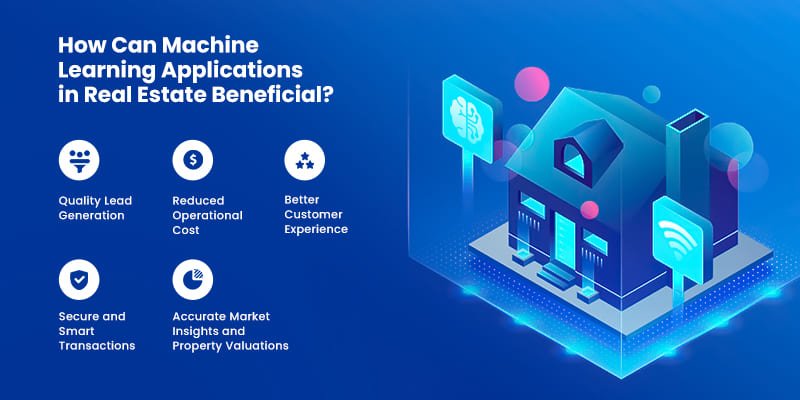
How Custom Software Development is Shaping Real Estate with Machine Learning
Custom software development is revolutionizing real estate by integrating Machine Learning (ML) to enhance market analysis and property management. ML algorithms offer predictive insights, optimizing property valuations and investment strategies. This fusion of technology is driving unprecedented efficiency and accuracy in real estate operations.
Smarter Property Valuations
Gone are the days of relying solely on comparative market analysis. With machine learning, real estate software can analyze vast amounts of data—ranging from market trends and property features to economic indicators—to deliver highly accurate property valuations. These ML models continuously learn and adapt, ensuring that valuations are updated with the latest market conditions and insights.
Enhanced Market Insights
Machine learning algorithms sift through massive datasets to uncover hidden patterns and trends. For real estate professionals, this means gaining deeper insights into market dynamics, buyer behaviors, and investment opportunities. Custom software solutions powered by ML can generate predictive analytics, helping investors make data-driven decisions and anticipate market shifts before they happen
Personalized Property Recommendations
Imagine a platform that understands your preferences, needs, and budget, and then suggests properties that perfectly match your criteria. Machine learning enables such personalization by analyzing user behavior and preferences. Real estate software can now offer tailored recommendations, improving the property search experience and increasing client satisfaction.
Efficient Lead Management
Managing leads and nurturing client relationships can be time-consuming. Machine learning simplifies this process through automation and predictive analytics. Custom CRM systems with ML capabilities can prioritize leads, identify high-potential prospects, and even automate follow-ups, allowing real estate agents to focus on building meaningful connections and closing deals.
Automated Valuation Models (AVMs)
Automated Valuation Models, powered by machine learning, have become essential tools for real estate professionals. These models use ML algorithms to assess property values quickly and accurately. By analyzing historical data, property characteristics, and current market conditions, AVMs provide reliable valuations that support decision-making processes
Streamlined Property Management
Machine learning also enhances property management by optimizing various tasks. From predicting maintenance needs and automating routine inspections to managing tenant communications and lease renewals, custom software solutions can streamline property management operations. This results in cost savings and improved efficiency for property managers and landlords.
Advanced Risk Assessment
In real estate, risk management is crucial. Machine learning algorithms can evaluate and mitigate risks by analyzing factors such as property history, market conditions, and economic indicators. This helps real estate professionals make informed decisions and minimize potential risks associated with property investments.
Improved Customer Service
Customer service in real estate can benefit significantly from machine learning. Chatbots and virtual assistants powered by ML can handle inquiries, schedule viewings, and provide instant support, offering a seamless and efficient experience for clients. This technology ensures that customers receive timely assistance and relevant information.
Conclusion
Machine learning is not just a buzzword—it’s a game-changer in the real estate industry. By integrating ML into custom software solutions, real estate professionals can gain a competitive edge, enhance their services, and make more informed decisions. As the industry continues to evolve, embracing these technological advancements will be key to staying ahead in a dynamic market.
Embrace the future of real estate with machine learning and see how it can transform your business. Ready to explore how custom software can drive change?
Contact us today to learn more!
Unleash the Power of CRM for Real Estate Wholesaling
Unleash the Power of CRM for Real Estate Wholesaling
In the dynamic world of real estate wholesaling, efficiency and organization are crucial for success. Real estate wholesalers are constantly on the move, sourcing deals, negotiating with sellers, and connecting with buyers. To manage these complex processes effectively, a robust Customer Relationship Management (CRM) system can be a game-changer. Here’s how unleashing the power of CRM for real estate wholesaling can streamline operations, enhance productivity, and drive growth. By centralizing data, automating routine tasks, and providing actionable insights, CRM systems help wholesalers stay ahead of the competition. Additionally, CRM tools facilitate better communication and follow-up, ensuring no opportunity is missed and fostering stronger relationships with clients.

What is Power of CRM for Real Estate?
CRM for real estate refers to software solutions designed to manage relationships and interactions with clients, leads, and stakeholders in the real estate industry. For wholesalers, CRM systems provide tools and features tailored to handle the unique demands of the wholesale market. From tracking leads and managing contacts to automating workflows and analyzing data, a CRM system is essential for optimizing real estate wholesaling operations.
Centralized Lead Management in CRM
One of the core benefits of CRM for real estate wholesaling is its ability to centralize lead management. Wholesalers often work with a large volume of leads, and keeping track of each one manually can be overwhelming. A CRM system consolidates all lead information in one place, allowing you to track interactions, follow-up activities, and lead status. This centralized approach ensures that no potential deal falls through the cracks and helps you maintain a clear overview of your pipeline.
Streamlined Communication in Real Estate
Effective communication is key to successful wholesaling. CRM systems offer features such as email integration, automated follow-ups, and task management to streamline communication with sellers, buyers, and other stakeholders. By automating routine communications and reminders, a CRM helps you stay on top of important tasks and ensures timely responses. This enhanced communication capability is crucial for building and maintaining strong relationships in the real estate wholesale market.
Automated Workflows and Task Management in CRM Software
Managing multiple deals simultaneously requires efficient workflow management. CRM systems enable the automation of repetitive tasks and processes, such as lead assignment, follow-up scheduling, and document management. Automated workflows reduce manual effort, minimize errors, and ensure that each step of the wholesaling process is executed smoothly. For wholesalers, this means more time to focus on high-value activities, such as negotiating deals and expanding their network.
Detailed Analytics and Reporting in CRM Software
Data-driven decisions are essential for optimizing your wholesaling strategy. CRM systems provide powerful analytics and reporting tools that offer insights into your lead generation, conversion rates, and overall performance. With detailed reports and dashboards, you can track key metrics, identify trends, and make informed decisions to improve your strategy. Leveraging these insights allows you to refine your approach, target high-potential leads, and ultimately enhance your success in real estate wholesaling.
Enhanced Lead Segmentation
Effective lead management requires segmenting leads based on various criteria, such as property type, location, or buyer preferences. CRM systems facilitate advanced lead segmentation, enabling you to categorize and prioritize leads more effectively. By targeting specific segments with tailored marketing and follow-up strategies, you can increase your chances of closing deals and building a more focused and efficient wholesaling operation.
Improved Collaboration and Team Coordination
Real estate wholesaling often involves working with a team of professionals, including acquisition managers, disposition specialists, and administrative staff. CRM systems support team collaboration by providing shared access to lead information, task assignments, and communication logs. This collaborative environment ensures that everyone is aligned and informed, leading to better coordination and a more cohesive approach to managing deals.
Scalability and Growth in Real Estate
As your wholesaling business grows, so do your operational needs. CRM systems are designed to scale with your business, accommodating increasing volumes of leads, deals, and team members. Whether you’re expanding into new markets or adding more resources, a CRM system can adapt to your evolving requirements and support your growth. This scalability is essential for maintaining efficiency and effectiveness as your real estate wholesaling business expands.
Enhanced Customer Experience in CRM Software
Providing a great experience for your clients and leads is crucial in the competitive real estate market. CRM systems help enhance customer experience by enabling personalized communication, timely follow-ups, and efficient handling of inquiries and issues. By leveraging CRM tools to deliver exceptional service, you can build strong relationships, foster client loyalty, and generate positive referrals, all of which contribute to the long-term success of your wholesaling business.
Conclusion
Unleashing the power of CRM for real estate wholesaling can significantly transform how you manage your business. By centralizing lead management, streamlining communication, automating workflows, and providing detailed analytics, CRM systems address the unique challenges of the wholesale market. The ability to segment leads, improve team collaboration, and scale with growth further enhances your efficiency and effectiveness.
In a competitive real estate landscape, a CRM system is not just a tool but a strategic asset that can drive success. Embracing CRM for real estate wholesaling positions your business for greater productivity, better client relationships, and sustained growth. Investing in the right CRM system empowers you to streamline operations and focus on what matters most—securing and closing profitable deals.
Custom Software Solutions for the Transportation Industry
Custom Software in Transportation Industry
The transportation industry is undergoing a seismic shift, driven by technological advancements and the need for enhanced efficiency and customer satisfaction. From logistics and fleet management to route optimization and real-time tracking, custom software solutions are proving to be pivotal in transforming operations and staying ahead of the competition. Here’s how custom software can revolutionize the transportation industry:
Custom software provides real-time data analytics, allowing for proactive decision-making and immediate adjustments to operations. It streamlines communication between drivers, dispatchers, and customers, ensuring seamless coordination and transparency. Additionally, tailored solutions enhance scalability, enabling companies to adapt quickly to market changes and evolving demands. Embracing these technologies not only boosts operational efficiency but also drives innovation and growth in the transportation sector.
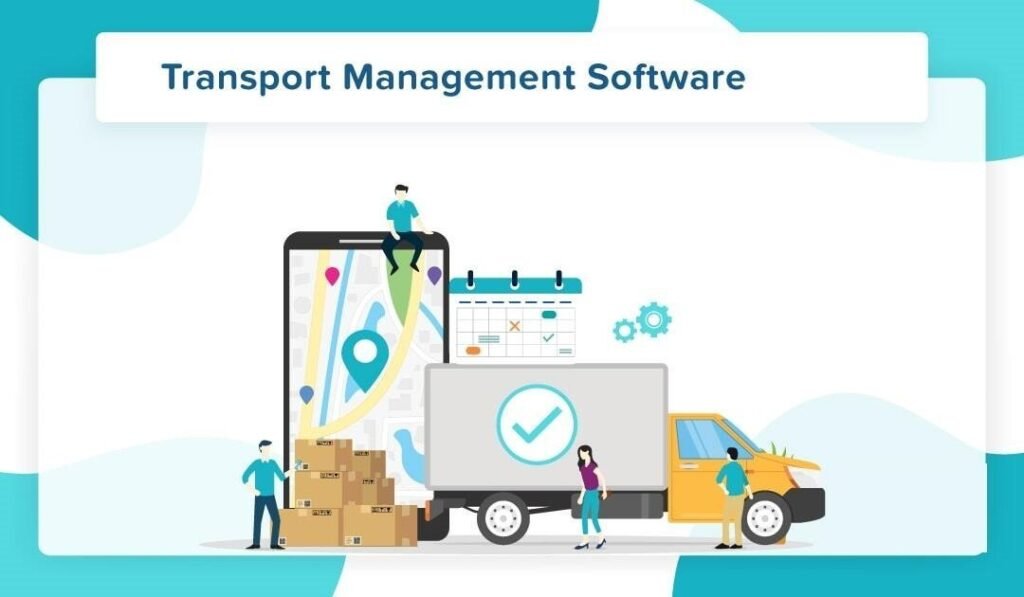
Streamlining Fleet Management in Transportation Industry
Managing a fleet of vehicles can be complex, involving everything from vehicle maintenance to driver schedules. Custom software solutions can simplify fleet management through:
Automated Maintenance Scheduling: Track vehicle health and schedule maintenance tasks to prevent breakdowns and reduce downtime.
Driver Management: Monitor driver performance, track hours, and ensure compliance with regulations.
Fuel Management: Optimize fuel consumption and track expenses to reduce costs.
By automating these processes, transportation companies can ensure their fleets operate smoothly and efficiently.
Optimizing Route Planning in Transportation Industry
Effective route planning is critical for reducing operational costs and improving service delivery. Custom software solutions can enhance route optimization by:
Real-Time Traffic Data: Integrate real-time traffic information to adjust routes dynamically and avoid delays.
Historical Data Analysis: Use historical data to predict traffic patterns and optimize routes for efficiency.
Geofencing: Set up geofencing to monitor vehicle locations and ensure adherence to planned routes.
Geofencing: Set up geofencing to monitor vehicle locations and ensure adherence to planned routes.
Enhancing Real-Time Tracking in Transportation Industry
Transparency and real-time updates are key to customer satisfaction in the transportation industry. Custom software solutions can provide:
Real-Time GPS Tracking: Allow customers and management to track the location of shipments or vehicles in real-time.
Automated Notifications: Send automated updates regarding shipment status, delays, or changes in delivery times.
Performance Analytics: Monitor and analyze performance metrics to identify areas for improvement.
By offering real-time visibility, companies can improve customer trust and manage expectations more effectively.
Improving Supply Chain Coordination in Transportation Industry
Effective supply chain management relies on seamless coordination between various stakeholders. Custom software solutions can:
Integrate Systems: Connect different systems within the supply chain for better data sharing and communication.
Automate Processes: Automate order processing, inventory management, and supplier interactions to streamline operations
Data Analytics: Analyze supply chain data to identify inefficiencies and optimize processes
With improved coordination, transportation companies can enhance supply chain efficiency and responsiveness.
Facilitating Compliance and Reporting in Transportation Industry
Compliance with industry regulations and accurate reporting are essential for avoiding penalties and maintaining operational standards. Custom software can:
Regulatory Compliance: Ensure adherence to transportation regulations, such as hours-of-service rules and environmental standards.
Detailed Reporting: Generate detailed reports for compliance audits, financial analysis, and performance evaluation.
Document Management: Manage and store important documents securely and efficiently.
These features help companies stay compliant and maintain transparency in their operations.
Enhancing Customer Experience in Transportation Industry
Providing a superior customer experience is crucial for retaining clients and attracting new business. Custom software solutions can:
Customer Portals: Offer online portals for customers to book services, track shipments, and manage their accounts.
Feedback Mechanisms: Collect and analyze customer feedback to continuously improve services.
Personalized Services: Tailor offerings based on customer preferences and history.
By focusing on customer experience, transportation companies can build strong relationships and drive long-term loyalty.
Conclusion
Custom software solutions are not just a technological upgrade; they are a strategic investment that can transform how transportation companies operate. From fleet management and route optimization to real-time tracking and customer experience, tailored software addresses specific challenges and opportunities within the industry.
By embracing these solutions, transportation companies can achieve greater efficiency, enhance service delivery, and maintain a competitive edge in a rapidly evolving market.
Ready to explore how custom software can revolutionize your transportation operations? Contact us to discuss your unique needs and discover the potential for innovation in your business!
Frictionless Meeting Management with Our New Meeting Module
Frictionless Meeting Management with Our New Meeting Module
In today’s whirlwind business environment, effective meetings are the cornerstone of collaboration and progress. But let’s face it, traditional meeting management can feel like navigating a chaotic labyrinth. Imagine drowning in a sea of paper agendas, struggling to decipher cryptic notes from the last meeting, and wading through endless email chains just to confirm attendance. This disorganization not only wastes precious time, but also squanders valuable resources and leaves everyone feeling frustrated and disengaged. There has to be a better way!
The good news is, there is! Modern meeting management solutions offer a digital lifeline, transforming the way your team collaborates. Imagine a world where agendas are easily created and shared electronically, clear action items are automatically assigned, and real-time notes are accessible to everyone. This not only streamlines the meeting process but also fosters accountability and ensures everyone is on the same page from start to finish.
But the benefits go beyond just efficiency. Modern solutions can also record meetings for future reference, integrate with video conferencing platforms for remote participation, and even leverage AI to automatically generate transcripts and highlight key takeaways. This newfound clarity and accessibility empower teams to revisit decisions, hold individuals accountable, and ensure continuous progress is made, even after the meeting has ended.
Ready to ditch the chaos and embrace a new era of streamlined meetings? Modern meeting management solutions are a game-changer for busy teams. Imagine the collective sigh of relief as wasted time and frustration become a thing of the past. Invest in a solution today and watch your team’s productivity and collaboration soar!
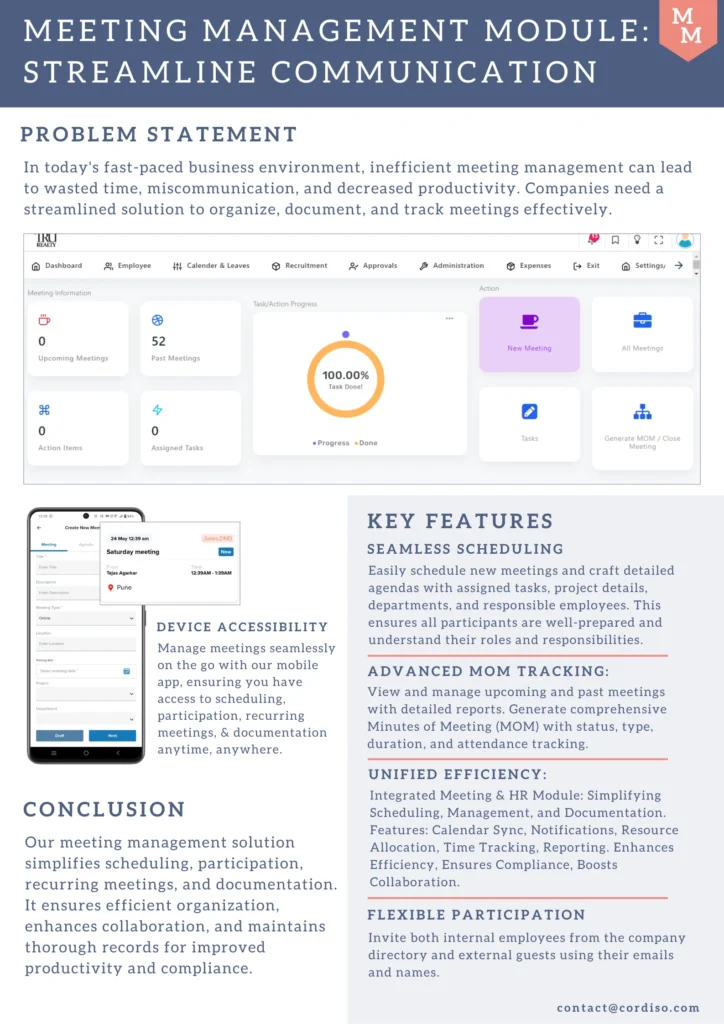
This Innovative Empowers You To
Effortlessly Schedule Meetings
Say goodbye to the scheduling struggle! Our intuitive interface allows you to create meetings, invite participants, and set reminders with just a few clicks.
Centralize Agenda Management
Develop and share electronic agendas collaboratively. Ensure everyone arrives prepared with clear objectives, talking points, and pre-assigned actions.
Foster Real-Time Collaboration
Spark active participation with in-meeting annotation tools. Take collaborative notes that capture key discussions, decisions, and action items in real-time.
Track Action Items with Ease
Assign tasks and deadlines directly within the meeting. Keep everyone accountable and on track with clear ownership and due dates for action items.
Seamless Integration
Integrate the MEETING MODULE seamlessly with your existing calendar and communication tools for a unified workflow. No more data silos or information gaps!
The Benefits of Our MEETING MODULE
Increased Efficiency: Free up valuable time and resources previously wasted on tedious scheduling and management tasks.
Improved Productivity: Ensure meetings are focused, productive, and action-oriented with clear agendas and action item tracking.
Enhanced Collaboration: Foster active participation and knowledge sharing within your team through collaborative note-taking and annotation tools.
Boosted Team Morale: Reduce meeting fatigue and frustration with a streamlined and efficient process that keeps everyone informed and engaged.
Improved Decision-Making: Access clear and concise meeting notes and action items to facilitate informed decision-making after each meeting.
The MEETING MODULE is More Than Just Software, It's a Meeting Mindset Shift
Our MEETING MODULE is designed to transform your meeting culture. It creates a collaborative environment where everyone can contribute effectively, decisions are documented clearly, and action items are tracked efficiently.
Here's how the MEETING MODULE empowers a more productive meeting experience:
Prioritize Preparation
Clear agendas and pre-circulated materials ensure everyone arrives informed and ready to participate.
Stay Focused and On-Track
Real-time note-taking and in-meeting tools keep everyone engaged and focused on the discussion.
Actionable Outcomes
Assign clear responsibilities and deadlines for action items, fostering accountability and driving results.
Transparency and Visibility
Meeting notes and action items are readily accessible to all participants, promoting transparency and information sharing.
Ready to revolutionize your meeting management process?
Contact us today to learn more about our MEETING MODULE and schedule a demo!
Don’t let inefficient meetings hold you back! Embrace the MEETING MODULE and unlock the full potential of your team’s collaborative power.
Cloud-Based Software (SaaS) Empowering Businesses in the Digital Age
Cloud-Based Software (SaaS) Empowering Businesses
In today’s fast-paced business environment, agility and accessibility are paramount. Cloud-based software, also known as Software-as-a-Service (SaaS), has revolutionized how businesses operate by offering a flexible, cost-effective, and scalable solution.
SaaS solutions are the sleek, multi-functional Swiss Army knives of the business world. They’re accessible from anywhere, anytime, on any device – empowering your team to collaborate seamlessly, respond to customers in real-time, and seize opportunities instantly. No more wrestling with bulky installations or expensive hardware upgrades. SaaS operates on a pay-as-you-go model, scaling effortlessly alongside your business growth. It’s a cost-effective investment that delivers unparalleled agility in a dynamic marketplace.
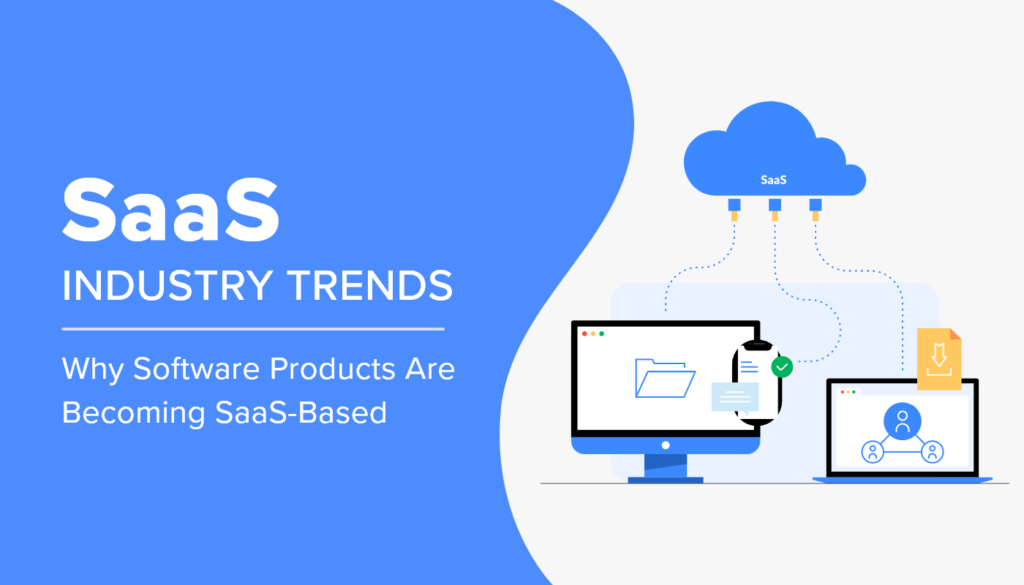
What is Cloud-Based Software (SaaS)?
Unlike traditional software that requires installation on individual computers, SaaS applications reside on remote servers accessed through the internet. This eliminates the need for expensive hardware and software licenses, making it a cost-effective option for businesses of all sizes. Users simply need a web browser and an internet connection to access the software and its features.
Benefits of SaaS for Businesses
Cost-Effectiveness
Eliminate upfront costs associated with traditional software licenses and hardware infrastructure. SaaS operates on a subscription model, allowing businesses to pay only for the features they use.
Increased Accessibility
Access your software from anywhere, anytime, on any device with an internet connection. This fosters remote work capabilities and empowers a global workforce.
Automatic Updates
No more manual software updates! SaaS providers handle all updates and security patches, ensuring you always have access to the latest features and security protocols.
Scalability
SaaS solutions seamlessly adapt to your business needs. Easily add or remove users and functionalities as your business grows or shrinks.
Improved Collaboration
Many SaaS applications offer real-time collaboration features, allowing teams to work together seamlessly on projects, documents, and data.
Reduced IT Burden
SaaS eliminates the need for in-house IT infrastructure and maintenance. The provider handles all server management and troubleshooting, freeing up your IT team to focus on strategic initiatives.
Security & Reliability
SaaS providers invest heavily in data center security and disaster recovery. Your data is often more secure in the cloud than on local servers.
Ease of Use
SaaS applications are designed for user-friendliness. With minimal training, employees can quickly learn and utilize the software, boosting productivity.
Examples of SaaS Applications
SaaS has permeated every industry, offering solutions for virtually every business need. Here are a few examples:
Customer Relationship Management (CRM)
https://cordiso.com/custom-crm/Manage customer interactions, sales pipelines, and marketing campaigns.
Project Management
Plan, track, and collaborate on projects with teams and clients.
Email & Collaboration
Secure communication and document sharing tools
Accounting & Finance
Manage finances, generate reports, and streamline financial processes.
Human Resource Management (HRM)
Recruit, onboard, and manage employee data and payroll.
Content Management Systems (CMS)
Create, manage, and publish website content.
The Future of Cloud Based Software(SaaS):
SaaS is rapidly evolving, with advancements in artificial intelligence, machine learning, and data analytics being integrated into these applications. This will bring about even greater levels of automation, personalized experiences, and data-driven insights for businesses.
Is SaaS Right for Your Business?
If you’re looking for a cost-effective, scalable, and user-friendly way to manage your business operations, then SaaS is a compelling option. Carefully evaluate your business needs and choose a SaaS provider offering the features and functionalities that align with your goals.
By embracing SaaS, you can empower your team, streamline operations, and gain a competitive edge in the digital age.
Boost Sales & Satisfaction: How a CRM Becomes Your Customer Lifeline
Boost Sales & Satisfaction How a CRM Becomes Your Customer Lifeline
In today’s hyper-competitive business environment, fostering strong customer relationships is no longer a luxury, it’s a necessity. But managing customer interactions, data, and touchpoints across various channels can quickly become overwhelming. This is where a Customer Relationship Management (CRM) system emerges as your knight in shining armor, helping you conquer customer chaos and build lasting relationships. This is where a Customer Relationship Management (CRM) system emerges as your shining knight in armor. It’s a comprehensive software solution that acts as a central command center for all your customer interactions. Think of it as a war room for winning customer hearts and minds.
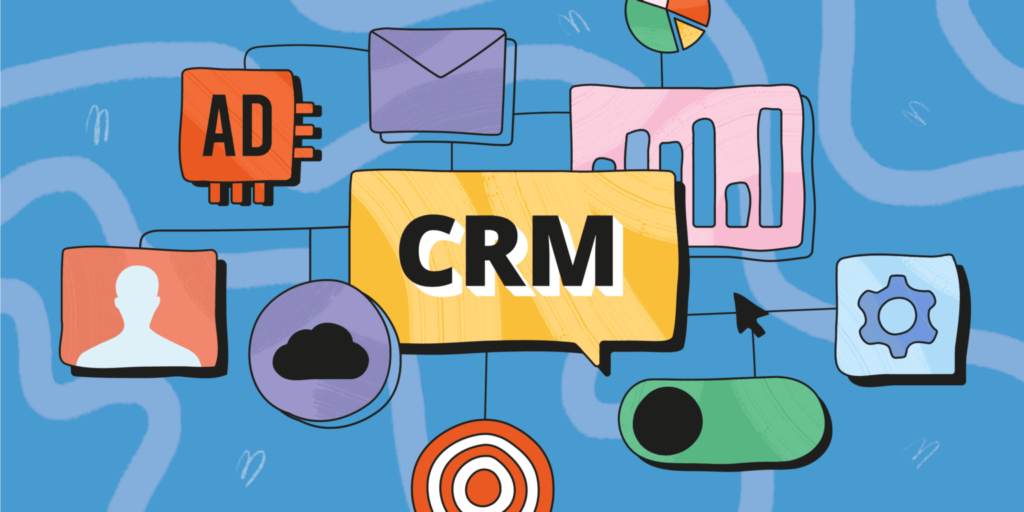
What is a CRM System?
Think of a CRM system as a centralized hub for all your customer interactions. It allows you to:
Store and Manage Customer Data
From contact information and purchase history to communication preferences and past interactions, a CRM system keeps all your customer data organized and easily accessible.
Track Sales Opportunities
Manage your sales pipeline, forecast deals, and close more leads with features like lead scoring, opportunity tracking, and activity management.
Enhance Customer Service
Provide exceptional customer service by streamlining communication, tracking support tickets, and offering personalized experiences.
Improve Marketing Efforts
Gain valuable customer insights to create targeted campaigns, personalize marketing messages, and measure campaign effectiveness.
Boost Collaboration
Break down silos and foster collaboration across your sales, marketing, and customer service teams.
The Benefits of a CRM System A Symphony of Success
Implementing a CRM system isn’t just about organization; it unlocks a range of benefits that can significantly improve your business:
Increased Sales
Streamlined sales processes, improved lead management, and better customer insights all contribute to boosting your sales efforts.
Enhanced Customer Satisfaction
Faster response times, personalized service experiences, and a deeper understanding of customer needs lead to happier and more loyal customers.
Improved Team Productivity
Automated tasks, centralized data, and better collaboration free up your team’s time to focus on strategic initiatives.
Data-Driven Decision Making
Gain valuable insights from customer data to make informed decisions about sales, marketing, and product development.
Scalability and Growth
As your business grows, your CRM system can scale to accommodate your needs, ensuring you can continue to provide exceptional customer service.
Choosing the Right CRM for Your Business
With a vast array of CRM solutions available, selecting the right one for your business is crucial. Here are some key factors to consider:
Company Size and Needs: Choose a CRM that caters to the specific needs of your business size and industry.
Budget: CRM systems come with varying pricing structures. Determine your budget and find a solution that offers the features you need within your financial constraints.
Ease of Use: An intuitive and user-friendly interface is essential for ensuring user adoption and maximizing the benefits of your CRM.
Integration Capabilities: Ensure your chosen CRM integrates seamlessly with your existing marketing, sales, and customer service tools.
Investing in Your Customer Relationships
A CRM system is an investment in the future of your business. By fostering stronger customer relationships, streamlining operations, and gaining valuable insights, a CRM system can be your key to achieving sustainable growth and success.
App to Riches: Master Mobile App Monetization!
App to Riches Master Mobile App Monetization
Have you poured your heart and soul into crafting a phenomenal mobile app? But the question remains: how do you translate that passion into profit? Welcome to the world of mobile app monetization, where you transform your app from a user magnet into a revenue-generating machine! This blog post is your roadmap to success. We’ll delve into proven strategies, explore different monetization models, and equip you with the knowledge to turn your app into a cash cow. So, buckle up, aspiring app mogul, and get ready to unlock the true potential of your creation! But with so many monetization models and ever-evolving user behavior, how do you choose the right approach? Don’t worry, this guide will equip you with the knowledge to navigate these challenges and achieve app monetization success.
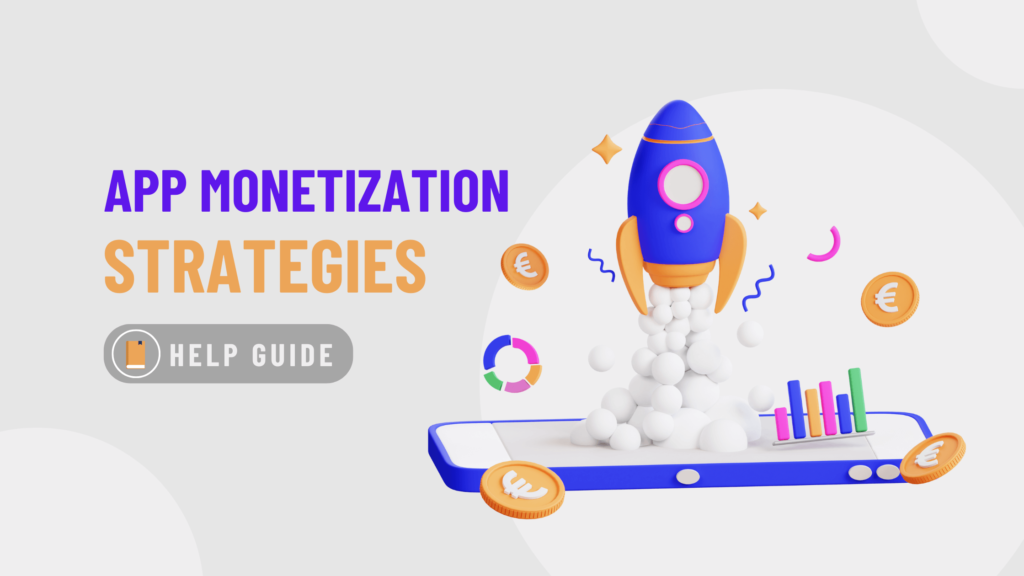
Why Monetization Strategies Matters for App Development
Monetization isn’t just about the immediate financial gain. Here’s why a well-defined monetization strategy is crucial for your app’s long-term success:
Sustainability: Monetization ensures the long-term viability of your app. Revenue allows you to keep developing, updating, and maintaining your app, fostering a happy and engaged user base.
Growth Potential: The revenue generated by your app can be reinvested into marketing and user acquisition strategies. This fuels your app’s growth, propelling it towards a larger user base and greater success.
Business Validation: A profitable app validates your concept and demonstrates its value proposition to potential investors or partners. This opens doors for further growth and development.
Unveiling the Mobile App Monetization Arsenal
Now, let’s explore the various monetization models you can leverage to turn your app into a cash cow:
In-App Purchases (IAPs)
This popular model allows users to purchase premium features, virtual goods, or additional content within your app. Offer compelling value propositions to incentivize purchases. Think exclusive functionalities, ad-free experiences, or enhanced customization options.
Subscriptions
Cater to users who crave ongoing value by offering tiered subscription plans. These plans grant users access to premium content, services, or features on a recurring basis. Tailor your plans to diverse needs with varying subscription levels and pricing structures.
Mobile Advertising
Integrate ad networks or platforms to display targeted ads within your app. You earn revenue through clicks, impressions, or conversions (when users take a desired action after seeing an ad). The key is to ensure a seamless user experience by placing ads strategically and avoiding intrusive formats.
Freemium Model
This model offers a basic version of your app for free, with limited features. Entice users to upgrade to a premium version with a wider range of functionalities through in-app purchases or subscriptions. The freemium model allows you to showcase your app’s value before asking for a commitment.
Choosing the Right Model for Mobile App Development
The optimal monetization model depends on your app’s unique features, target audience, and overall business goals. Consider these factors when making your decision
App Functionality: Does your app lend itself naturally to in-app purchases of additional features or content?
User Behavior: Are your users likely to engage in recurring subscriptions or one-time purchases?
Market Competition: Analyze how similar apps in your niche monetize. Adapt their successful strategies and avoid replicating their failures.
Pro Tips for Mobile App Monetization Success
Here are some additional insights to help you maximize your app’s revenue potential:
Prioritize User Experience
A seamless user experience is paramount. Disruptive ads or excessive in-app purchase prompts can turn users away. Focus on creating value first, and monetization will follow.
A/B Testing is Your Friend
Experiment with different pricing models, ad formats, and subscription tiers to see what resonates best with your audience. Data-driven decisions are crucial for optimization.
Data-Driven Decisions
Utilize app analytics to understand user behavior, identify purchase trends, and optimize your monetization strategy for maximum impact.
Focus on User Value
Always provide value in exchange for money. Offer premium features or content that genuinely enhances the user experience.
Transparency is Key
Be upfront about your monetization strategy. Clearly communicate pricing structures and subscription terms to avoid user frustration.
Conclusion
Monetizing your mobile app doesn’t have to be a guessing game. By understanding the available models, choosing the right fit for your app, and prioritizing user experience, you can turn your creation into a successful and sustainable business venture. Remember, a well-crafted monetization strategy is the key to unlocking the true potential of your mobile app and achieving long-term growth. Enjoy Mobile App Monetization Strategies.
Unleash the Power of Data-Driven Decisions with Custom Software
Unleash the Power of Data-Driven Decisions with Custom Software
In today’s dynamic business landscape, intuition and gut feelings simply aren’t enough. To thrive, businesses need to leverage the power of data to make informed, strategic decisions. This is where custom software development steps in as a game-changer, transforming raw data into actionable insights that propel businesses towards success. Custom software empowers data-driven decision making by offering tailored solutions that perfectly align with your unique needs and data sources, ensuring insights are relevant and actionable. Beyond basic reporting, custom software provides advanced analytics tools to uncover hidden patterns, predict trends, and make data-driven recommendations for optimized performance. Finally, real-time visibility empowers you to respond to market shifts and customer behavior in real-time, fostering agility and a competitive advantage, allowing you to stay ahead of the curve in a constantly evolving landscape. Contact us today for your future Custom software Development. It’s time for Power of Data-Driven Decisions with custom software.

The Problem with Operating in the Dark
Many businesses rely on instinct and past experiences when making crucial choices. However, this approach is fraught with risks
Missed Opportunities: Valuable insights hidden within data remain untapped, potentially leading to missed market opportunities.
Inefficient Operations: Without data-driven insights into processes, bottlenecks and inefficiencies can persist, hindering productivity and profitability.
Suboptimal Customer Experiences: Without a clear understanding of customer behavior, businesses struggle to personalize experiences and build strong relationships.
Poor Investment Decisions: Strategic investments made without data-driven evidence can lead to wasted resources and missed targets.
How Custom Software Empowers Data-Driven Decisions
Custom software development empowers businesses to transform raw data into actionable insights. Let’s explore how
Data Collection and Integration
Custom software can seamlessly collect data from various sources – customer interactions, sales figures, operational metrics, and market trends. This centralized data repository becomes your single source of truth.
Advanced Analytics and Reporting
Go beyond basic data visualization. Custom software can leverage sophisticated analytics tools to identify patterns, trends, and correlations within your data, revealing hidden insights that inform better decision-making.
Real-Time Visibility
Gain instant access to critical performance metrics. Monitor key indicators and make adjustments as needed, ensuring your business stays agile and adapts to changing market dynamics.
Customization for Specific Needs
Off-the-shelf software doesn’t always cater to your unique business needs. Custom software can be tailored to capture the specific data points most relevant to your operations and goals.
The Benefits of Data-Driven Decisions
By leveraging custom software for data-driven decision-making, businesses can reap significant benefits.
Improved ROI
Backed by data, businesses can make strategic investments that maximize returns and minimize risks.
Enhanced Customer Satisfaction
Data-driven insights enable businesses to personalize customer experiences, leading to higher satisfaction and loyalty.
Optimized Operations
Identify and eliminate inefficiencies, streamline workflows, and improve overall operational efficiency.
Gaining a Competitive Advantage
Data insights empower businesses to identify trends, anticipate market shifts, and develop informed strategies that give them a competitive edge.
Unleashing the Power: Getting Started with Custom Software
The journey to data-driven decision-making doesn’t have to be complex. Here’s how to get started.
Identify Your Goals: Define the key questions you want data to answer and the business areas where data-driven insights would be most impactful.
Partner with a Reputable Developer: Choose a custom software development company with experience in building data-driven solutions tailored to your industry.
Focus on Integration: Ensure your custom software seamlessly integrates with existing systems to create a centralized data hub.
Invest in User Training: Empower your team to understand and utilize the data analysis tools within the custom software.
Conclusion
Custom software development is not just about building applications; it’s about unlocking the power of data to transform your business decision-making. By leveraging data insights, businesses can gain a competitive edge, optimize operations, and drive sustainable growth. In today’s data-driven world, custom software is the key to unleashing informed choices and achieving lasting success.
Ready to embark on your journey to data-driven decision-making? Let’s discuss how custom software development can empower your business!
Empowering Your Online Store The Power of Custom E-commerce Software
Empowering Your Online Store: The Power of Custom E-commerce Software
In today’s fiercely competitive e-commerce landscape, even the black box algorithms of off-the-shelf platforms can’t guarantee success. Customers are digital ninjas, wielding razor-sharp expectations. Generic shopping experiences are yesterday’s news. Today’s savvy shoppers crave hyper-personalization, the convenience of a one-click purchase, and a seamless journey that feels more like a curated shopping spree than a digital maze. This is where custom e-commerce software swoops in, wielding the power of a bespoke digital storefront. Imagine a platform that reflects your brand’s unique personality, anticipates customer needs, and fosters explosive growth – not just sales, but loyalty and brand advocacy. Custom software empowers you to craft an e-commerce experience that transcends transactions, building lasting relationships with your customers.
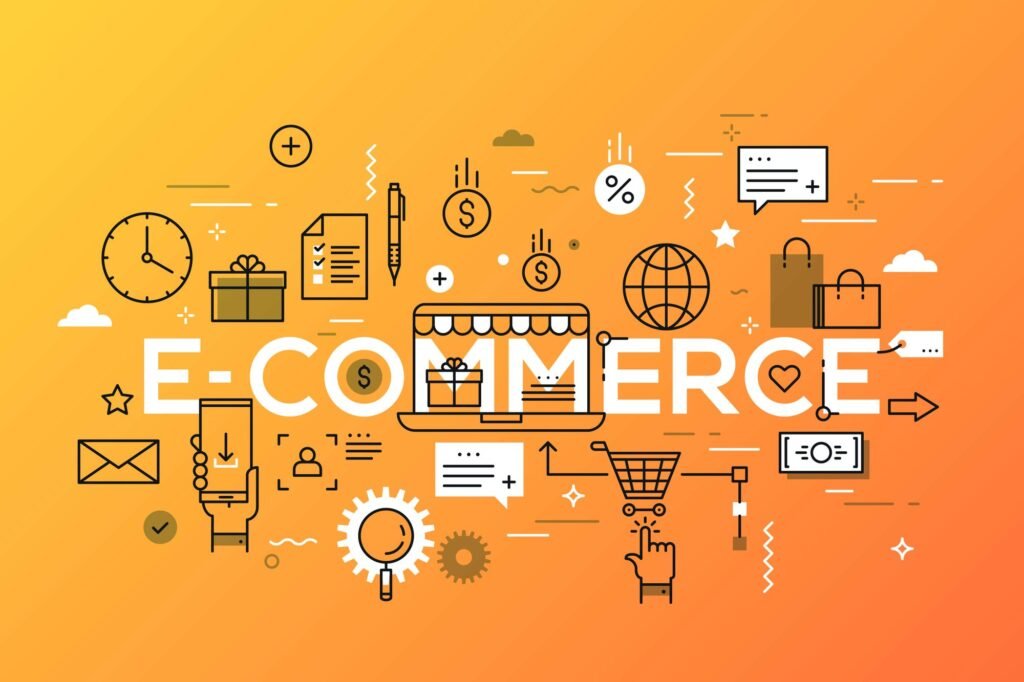
Why Off-the-Shelf Solutions Can Hinder Your Growth
Pre-built e-commerce platforms like Shopify or Wix offer a quick and affordable way to launch an online store. However, they come with limitations:
Restricted Functionality
These platforms often lack the specific features and functionalities your business might require for a unique selling proposition or a niche market.
Limited Customization
The ability to customize the look and feel of your store is restricted, hindering the creation of a strong brand identity.
Scalability Issues
As your business grows, off-the-shelf platforms may struggle to handle increased traffic or complex product offerings.
Integration Challenges
Integrating with existing business systems like inventory management or CRM software can be cumbersome or even impossible.
The Advantages of Building Custom E-commerce Software
Investing in custom e-commerce software empowers you to overcome these limitations and unlock a new level of control and growth for your online store. Here’s how:
Tailored Functionality
Develop features that address your specific business needs, whether it’s advanced product filtering, integration with a custom loyalty program, or a personalized recommendation engine
Enhanced Brand Experience
Craft a unique and visually appealing storefront that reflects your brand identity and resonates with your target audience.
Scalability & Flexibility
Build a platform that scales seamlessly with your business growth, accommodating future product additions, increased traffic, and evolving market demands.
Seamless Integration
Integrate your e-commerce platform with existing business systems and tools like ERP, CRM, and marketing automation software for streamlined operations and data-driven decision-making.
Beyond the Basics: Key Considerations for Custom E-commerce Development
User Experience (UX) Design
Prioritize user-friendliness with intuitive navigation, clear product information, and a smooth checkout process to maximize conversions.
Mobile Optimization
Ensure your platform is responsive and delivers an exceptional experience across all devices, especially mobile devices which account for a significant portion of e-commerce traffic.
Security & Compliance
Implement robust security measures to protect sensitive customer data and ensure compliance with relevant data privacy regulations.
Search Engine Optimization (SEO)
Optimize your platform for search engines to improve organic traffic and online visibility.
Content Management System (CMS)
Integrate a CMS to allow for easy content updates and product descriptions, keeping your store fresh and engaging for customers.
Building a custom e-commerce platform is an investment, but it’s an investment in the future of your online business. With a platform that caters to your specific needs and empowers both your team and your customers, you’ll be well-positioned to thrive in the ever-evolving world of e-commerce.
Ready to take your online store to the next level? Consider partnering with a reputable custom software development company to discuss your vision and explore the possibilities of a custom e-commerce solution.
ACPM: The Powerhouse Transforming the Real Estate Industry
ACPM: The Powerhouse Transforming the Real Estate Industry
The annual performance review process feels like a relic from a bygone era. Stiff meetings filled with generic feedback forms and outdated evaluations leave both employees and managers feeling frustrated and disengaged. Employees crave regular feedback to understand their strengths, weaknesses, and development opportunities. Managers struggle to find the time to provide meaningful feedback while juggling their already overloaded schedules.
But what if there was a better way? Enter Automated Continuous Performance Management Systems (ACPM). These innovative tools are revolutionizing the way we approach performance management. ACPMs move the focus away from a single, high-pressure annual review to a system of ongoing feedback and development. They streamline the process by automating administrative tasks such as setting goals, distributing feedback forms, ACPMs also leverage data from performance reviews, self-assessments, and peer feedback to provide personalized insights for both employees and managers. This allows employees to take ownership of their development and managers to make more informed decisions about employee training and career paths. Additionally, ACPMs can integrate with other HR tools, creating a centralized hub for performance management data. This holistic view allows organizations to identify trends, track team progress towards goals, and measure the overall effectiveness of their performance management strategy. By embracing ACPMs, organizations can create a more engaged and productive workforce, ultimately leading to improved business outcomes. and tracking progress. This frees up valuable time for meaningful one-on-one conversations between employees and managers, fostering a culture of continuous learning and growth.
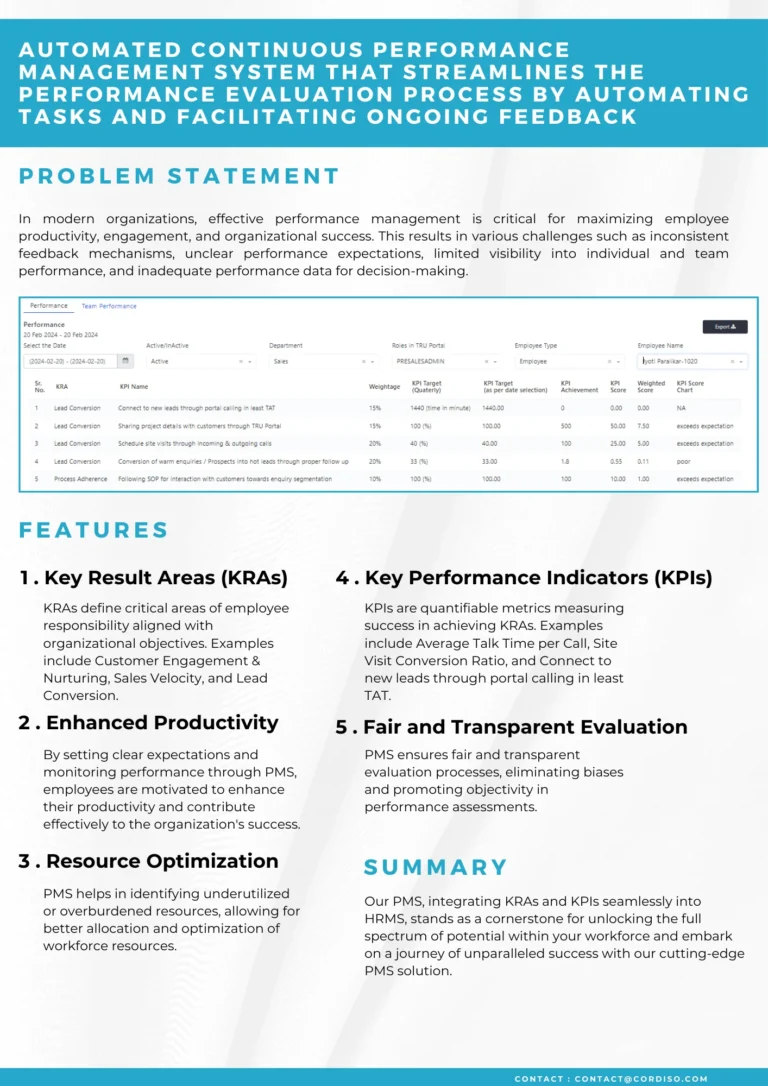
Here's why ACPMs are the Future of Performance Management System
Goodbye, Annual Reviews
Say goodbye to the stress and anxiety of annual reviews. ACPMs facilitate continuous feedback conversations, empowering employees to grow throughout the year.
Streamlined Process
Automate administrative tasks like setting goals, distributing feedback forms, and tracking progress. This frees up valuable time for meaningful one-on-one discussions.
Data-Driven Insights
ACPMs leverage data from performance reviews, self-assessments, and peer feedback to provide personalized insights for both employees and managers.
Improved Engagement
Employees feel more valued and engaged when they receive regular, actionable feedback. This fosters a culture of learning and development.
Increased Transparency
ACPMs promote transparency by providing a clear picture of expectations and facilitating open communication.
Benefits of Automated Continuous Performance Management Sustem
Regular Feedback: Receive constructive feedback that helps you improve and grow in your role.
Development Opportunities: Identify strengths and weaknesses to build a personalized development plan
Goal Setting & Tracking: Set clear goals, track progress, and stay motivated throughout the year.
Increased Recognition: Feel valued and appreciated for your contributions.
Benefits of ACPMs for Managers
Simplify Performance Management: Spend less time on administrative tasks and more time coaching and developing your team.
Data-Driven Decisions: Make informed decisions about employee performance and development based on concrete data.
Improved Retention: A positive performance management experience fosters employee engagement and reduces turnover
Enhanced Communication: ACPMs facilitate more frequent and meaningful conversations with your team.
Cordiso offers user-friendly ACPM solutions. Contact us today to learn more!

